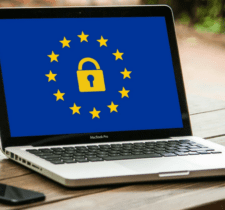Council of the EU has adopted a new EU Product Liability Directive, offering greater legal clarity to both businesses and consumers.
The European Union has unveiled a significant update to its product liability laws through the new Product Liability Directive. This directive officially came into force on December 8, 2024., replacing the 1985 law, bringing much-needed modernization of the legislation to align with the realities of the digital world, circular economy models, and ever increasing global trade. By addressing the challenges posed by new technologies like artificial intelligence (AI), remanufactured or modified products, and online sales platforms, the directive seeks to provide better protection for consumers while offering businesses greater legal clarity and fostering innovation.
The revised regulations cover digital and AI technologies in products such as operating systems and software applications.
One of the standout features of the new directive is its explicit inclusion of digital and AI technologies. Products such as software applications, operating systems, and AI systems are now clearly covered under the updated rules. According to this directive, manufacturers are held liable for defects present at the time of release, as well as those that surface later due to updates, upgrades, or evolving machine-learning features. This ensures that even rapidly advancing technologies remain safe for consumers over their lifecycle. Additionally, the directive extends liability to digital manufacturing files, recognizing their integral role in modern production.
By establishing accountability for product modifications, the new directive also responds to the increasing relevance of the circular economy.
The recent directive also addresses the growing prominence of the circular economy by introducing accountability for product modifications. Products that are substantially modified—whether through remanufacturing, significant upgrades, or other interventions—are now treated as new products under the law. In such cases, liability shifts from the original manufacturer to the individual or entity responsible for the modifications. This change incentivizes responsible practices in modification, repair or refurbishment, encouraging safer and more sustainable models.
The increased liability of online platforms is another significant development in the new EU Product Liability Directive.
Another major development is the increased liability of online platforms. With e-commerce becoming a dominant force in global trade, platforms that act as manufacturers, importers, or distributors of defective products can now be held liable for damages caused by those products. Even platforms that act solely as intermediaries are subject to specific obligations under the Digital Services Act (DSA). This ensures that consumers are protected regardless of whether a defective product was purchased directly from a manufacturer or through an online marketplace.
The revised regulations also diminish the requirement for consumers to present extensive evidence, especially when it comes to complicated technologies where it could be challenging to demonstrate the defect or cause.
The directive enhances consumer rights in several important ways. Victims of defective products can now claim compensation for a broader range of damages, including physical and psychological harm, property damage, and even digital losses such as data corruption. The updated rules also reduce the burden of providing extensive proof for consumers, particularly in cases involving complex technologies where proving the defectiveness or causation may be difficult. Courts are now able to accept the likelihood of a defect or its causal link to the damage as sufficient evidence. Additionally, victims can request access to relevant evidence held by manufacturers or distributors, leveling the playing field in product liability disputes.
The directive establishes a liable party within the EU in order to handle the complexity of international trade.
To address the complexities of global trade, the directive ensures that victims always have access to an EU-based liable party. If the manufacturer is located outside the EU, liability falls to the importer, authorized representative, or distributor operating within the EU. In the absence of a clearly identifiable liable party, the distributor itself may be held accountable. This approach guarantees that consumers can seek compensation even when defective products originate from non-EU manufacturers.
The time frame within which liability to customers is applicable has also been established by the directive.
The directive also clarifies the timeframes within which liability applies. Economic operators are responsible for their products for up to 10 years after they are placed on the market. In cases where health-related damages emerge much later, such as with medical devices or pharmaceuticals, this period can extend to 25 years. Victims have a three-year window to bring claims for compensation, starting from the date they become aware of the damage.
The new EU Product Liability Directive provides major benefits for both corporations and consumers, guiding innovation while protecting consumers more comprehensively.
In addition to benefiting consumers, the updated rules provide significant advantages for businesses. By offering clear guidelines on liability, the directive reduces legal uncertainties and fosters confidence in adopting innovative technologies. The new rules also encourage sustainable practices by holding parties accountable for product modifications in the circular economy. Businesses that comply with these requirements are better positioned to compete in a market that increasingly values safety, sustainability, and transparency.
Products introduced to the market from December 9, 2026, will be subject to all of the provisions of the new EU Product Liability Directive.
The details of the new EU Product Liability Directive will fully apply to products placed on the market starting December 9, 2026. Member states have until that date to transpose the directive into national law. Until then, the 1985 directive remains applicable to products already on the market. To further enhance transparency, the EU plans to establish a centralized database of product liability cases. This resource will make court decisions more accessible to legal practitioners, academics, and the public, promoting consistency and knowledge sharing across the region.








